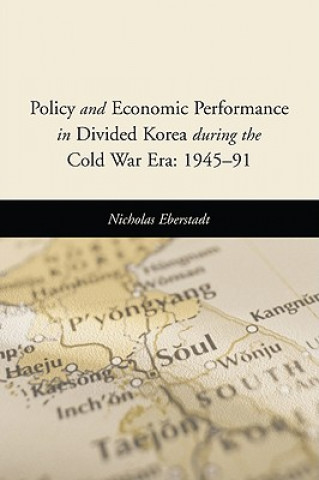
Kod: 04942629
Policy and Economic Performance in Divided Korea during the Cold War Era: 1945-91
Autor Nicholas Eberstadt
The Korean peninsula during the Cold War provided a cruel but historically unparalleled real-world "experiment" in the relationship between polity and material advance: an ethnically and culturally homogenous nation was, in 1945, ... więcej
- Język:
 Angielski
Angielski - Oprawa: Miękka
- Liczba stron: 340
Wydawca: AEI Press, 2010
- Więcej informacji o książce

136.02 zł
Zwykle: 143.20 zł
Oszczędzasz 7.18 zł

Dostępna u dostawcy
Wysyłamy za 14 - 18 dni
Zobacz książki o podobnej tematyce
-

Multinational Enterprises and Tort Liabilities
824.42 zł -

A to Z of Ethics
307.60 zł -

Utopian Moments
214.83 zł -

Movement in Language
385.60 zł -

Transforming Museum Volunteering
200.88 zł -
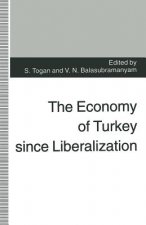
Economy of Turkey since Liberalization
284.81 zł
Bon podarunkowy: Radość gwarantowana
- Podaruj bon o dowolnej wartości, a my się zajmiemy resztą.
- Bon podarunkowy dotyczy całej naszej oferty.
- Możesz wydrukować elektroniczny bon z e-maila a następnie przekazać go obdarowanemu.
- Ważność bonu wynosi 12 miesięcy od daty wystawienia.
Więcej informacji o Policy and Economic Performance in Divided Korea during the Cold War Era: 1945-91
Za ten zakup dostaniesz 80 punkty
 Opis
Opis
The Korean peninsula during the Cold War provided a cruel but historically unparalleled real-world "experiment" in the relationship between polity and material advance: an ethnically and culturally homogenous nation was, in 1945, suddenly divided by an arbitrary boundary line and then subjected to two radically different and adversarial political economies for successive decades on end. Assessing the competition between the North and South Korean economies from partition to the end of the Soviet era, Nicholas Eberstadt argues that the storyline is not quite as simple as the now-prevailing narrative suggests (that centrally-planned economies are doomed to fail against market-oriented alternatives). Rather, he suggests, the race for material progress was just that: a race, the results of which were far from preordained at the outset. In Policy and Economic Performance in Divided Korea during the Cold War Era: 1945-91, Eberstadt presents an impressive compilation of hard-to-find comparative data on economic performance for the Democratic People's Republic of Korea (DPRK, or North Korea) and the Republic of Korea (ROK, or South Korea) over two critical generations. By a number of indicators, Eberstadt argues, Kim Il Sung's North Korea actually outperformed South Korea for much of this period-not only in the years immediately following partition, but perhaps also into the 1970s. To explain these surprising results, Eberstadt details the impact of government policies on the course of growth of both economies and offers some unorthodox observations about material performance under these two contending polities. He finds that prevailing economic development theory on such issues as planned-versus- market economies, military burden, and the relationship between material advance and poverty, may require reexamination in light of the experience of the two Koreas between partition and the end of the Cold War.
 Szczegóły książki
Szczegóły książki
Kategoria Książki po angielsku Humanities History Military history
136.02 zł
- Pełny tytuł: Policy and Economic Performance in Divided Korea during the Cold War Era: 1945-91
- Autor: Nicholas Eberstadt
- Język:
 Angielski
Angielski - Oprawa: Miękka
- Liczba stron: 340
- EAN: 9780844742748
- ISBN: 0844742740
- ID: 04942629
- Wydawca: AEI Press
- Waga: 504 g
- Wymiary: 153 × 229 × 27 mm
- Data wydania: 16. March 2010
Ulubione w innej kategorii
-

With the Old Breed
45.47 zł -5 % -

SS Dirlewanger Brigade
73.08 zł -6 % -

Mediterranean Air War, 1940-1945
230.09 zł -23 % -

Wars of the Roses
81.41 zł -5 % -

SAS in Occupied France
115.84 zł -23 % -

Armies of Europe Illustrated
122.47 zł -
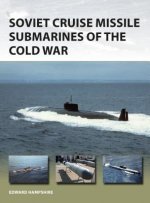
Soviet Cruise Missile Submarines of the Cold War
85.32 zł -5 % -

Black Prince And The Sea Devils
177.89 zł -

Truth About The Wunderwaffe
217.14 zł -

Kill Anything That Moves
93.26 zł -5 % -

Helmet for my Pillow
60.93 zł -23 % -

Forgotten Highlander
60.93 zł -23 % -

TM 9-803 Willys-Overland MB and Ford Model GPW Jeep Technical Manual
93.05 zł -5 % -

With the Old Breed
70.16 zł -23 % -

Sleepwalkers
87.63 zł -14 % -

Panzerkampfwagen Tiger Ausf.B
105.91 zł -13 % -

D-Day
47.18 zł -23 % -

War that Ended Peace
46.87 zł -14 % -
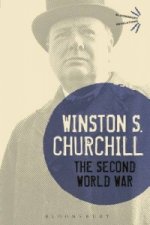
Second World War
135.82 zł -9 % -

Band Of Brothers
43.26 zł -15 % -

American Sniper
51.69 zł -23 % -

Battles Map by Map
137.03 zł -14 % -

Brothers in Battle, Best of Friends
77.29 zł -5 % -

Eastern Approaches
60.93 zł -23 % -

Citizen Soldiers
60.93 zł -23 % -

Fate is the Hunter
51.69 zł -23 % -

Shattered Sword
151.08 zł -6 % -

Panzerjager on the Battlefield
120.26 zł -23 % -

Fairbairn-Sykes Commando Dagger
74.58 zł -23 % -

Templars
56.31 zł -23 % -

Bravo Two Zero
52.20 zł -15 % -
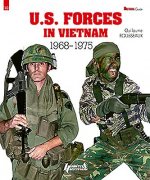
Us Forces in Vietnam 1968 - 1975
101.29 zł -4 % -

Military History Book
138.53 zł -23 % -

Lost Victories
101.99 zł -23 % -

The Second World War
78.70 zł -14 % -

Hirohito and the Making of Modern Japan
70.16 zł -23 % -

T-34 on the Battlefield. Volume 2
178.39 zł -6 % -

Reaper
85.32 zł -5 % -

RAF Battle of Britain Fighter Pilots' Kitbag
79.20 zł -23 % -

Art of War
52.20 zł -15 % -

Pacific Crucible
105.40 zł -4 % -

Soldaten - On Fighting, Killing and Dying
47.18 zł -23 % -

1914-1918
88.44 zł -23 % -
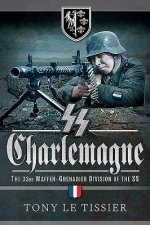
SS Charlemagne
60.93 zł -23 % -

Between Giants
96.17 zł -11 % -

German Panzers 1914-18
67.35 zł -15 % -

War Like No Other
81.21 zł -11 % -

Hommes et ouvrages de la ligne Maginot, Tome 4
220.55 zł -

Winter Uniforms of the German Army
358.60 zł -4 %
zadowolonych klientów
Od roku 2008 obsłużyliśmy wielu miłośników książek, ale dla nas każdy był tym wyjątkowym.
Copyright! ©2008-24 libristo.pl Wszelkie prawa zastrzeżonePrywatnieCookies


 21 milionów książek
21 milionów książek Dostawa 10.99 zł
Dostawa 10.99 zł (32) 444 93 66 (8-15.30h)
(32) 444 93 66 (8-15.30h)